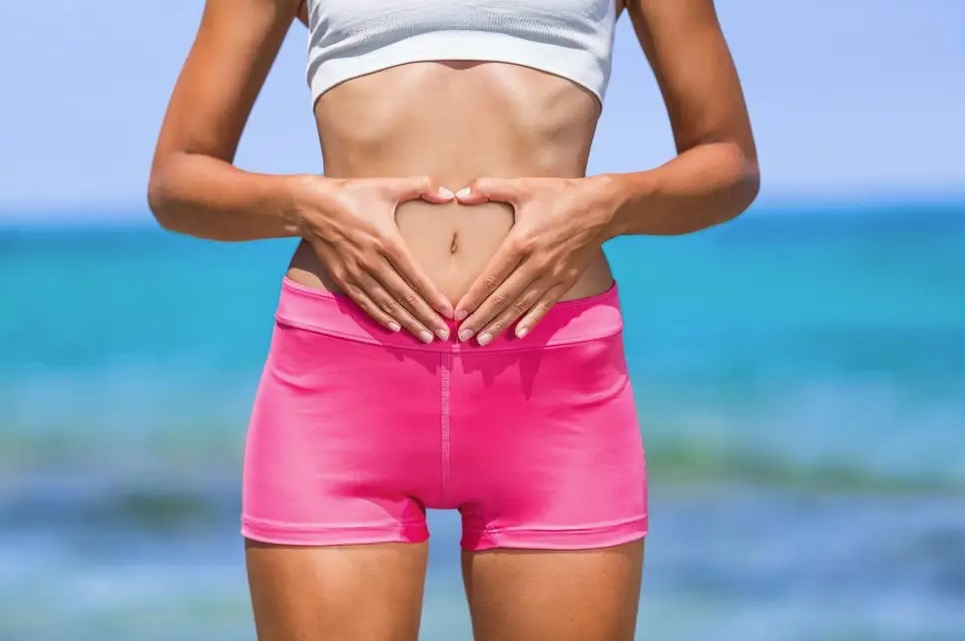Keto has tons of great benefits — weight loss, heart health, mental clarity, clear skin, you name it.
But as your body transitions into ketosis it can struggle to adapt to your new low carb lifestyle.
For example, you can experience constipation, diarrhea, frequent bowel movements, and other changes to your digestion.
Doesn’t sound fun, I know…
But there is good news.
Because you’re not alone. Lots of people going keto have experienced the same things. It’s a common side effect of starting keto and there’s a lot you can do about it.
Plus, it’s only temporary.
The truth is, there are a lot of long-term digestive health benefits of going keto. And once your bowel movements stabilize and your body adjusts to this new way of eating, your gut will thank you.
Here’s a look at what causes the changes in your digestive system, how you can stop it from happening, and how long-term keto can help.
What Happens To Your Gut On Keto?
When you start a keto diet, there are a few things that can happen to your digestive system.
- You can have trouble going (constipation)
- You go too much (diarrhea)
Let’s start with constipation.
KETO AND CONSTIPATION
First things first, not everyone goes #2 every day and just because you don’t doesn’t mean you’re constipated.
Some people go 3 times a day while others go once every 3 days.
The time to be concerned is when you experience a sudden change in your bathroom habits coupled with difficulty going (a.k.a. it’s hard and dry)
Here are the three main causes of keto-related constipation:
#1: Not enough fiber
Most people getting started on keto have a tendency to cut out a lot of fiber containing foods. Things like whole grains, high carb vegetables, beans, legumes, etc.
The result is an overall lack of fiber. And because fiber adds bulk to your stool it helps to keep you regular.
When you don’t get enough fiber, you can get constipated.
But don’t worry, it’s an easy fix.
Just eat more low-carb veggies. Thing like broccoli, cauliflower, fennel, kale and cabbage are all good things to add to your diet.
Low sugar fruits are also good to add. Things like Blackberries, raspberries, and strawberries are also great sources of fiber.
#2: Dehydration
Within the first few days of starting keto it’s pretty normal to lose anywhere between 3-8 pounds. Most of this is water and there are a few reasons for this.
For one thing, because your carbs are low you aren’t holding onto water. Carbs require a lot of water for storage.
As you start to lose water and you don’t replace it, you can once again end up with constipation. That’s because your stool is dry and hard due to lack of water.
The fix?
Drink a LOT more water throughout the day.
#3: Electrolyte Imbalance
The other thing that happens when you stop eating carbs is that your insulin levels stay low.
And that’s a good thing.
But it does cause your kidneys to start dumping, magnesium, and potassium instead of holding onto them.
Electrolytes (especially magnesium) pull water into your gut, which as you can imagine dries out your stool.
The solution: The best way to handle this is to improve your electrolyte balance by making sure you salt your food liberally, get plenty of veggies, and take a magnesium supplement daily, just be sure you don’t take more than 400 mg, or you may get diarrhea.
Eating more veggies, drinking more water, and prioritizing electrolytes will fix your constipation issues in most cases.
KETO AND DIARRHEA
Now as bad as constipation is, diarrhea can be MUCH worse.
Here are the most common reasons why keto gives you diarrhea.
#1: Low Digestive Enzymes
Your liver makes bile and digestive enzymes to break down and digest fat, but because you’re now eating more fat that usual, it may take a while for your liver to catch up.
Until it does, you can end up with diarrhea due to all of the undigested fat.
The solution: If you’re getting diarrhea as you ease into the keto diet, you can take lipase. A digestive enzyme that breaks down fat. Usually after a week or so your body will catch up.
#2: Low Fiber Intake
Just like eating too little fiber can give you constipation, it can also cause diarrhea too. Without fiber to slow down digestion, food goes through you much faster.
The solution: If you have diarrhea, much like we already discussed try eating more low-carb fruits and veggies.
#3: Too Many MCTs
A lot of people following the keto diet have use medium-chain triglycerides (MCTs) to get extra energy and a boost their ketone levels. MCTs are great for you, but they can cause stomach issue and diarrhea.
The solution: If you find MCTs give you diarrhea, start slowly. I usually recommend you start with 1 tsp then gradually work your way up to ~2 tablespoons over the course of a week or so.
By using these simple tips, you should be able to get a handle on both constipation and diarrhea.
Once your body adapts, you’ll be good to go moving forward.
And if you’re wondering how keto helps your digestion.
Here are 3 ways keto improves your digestion.
#1: KETO FEEDS GOOD GUT BACTERIA
Your gut microbiome is filled with trillions of bacteria that influence your digestion, metabolism, and even your brain.
There are literally thousands upon thousands of species of bacteria in your gut, and they change based on what you’re eating and the environment. But not all bacteria are friendly.
The key is to feed the good bacteria and starve the bad.
Keto is great for your good gut bacteria — research has found that a ketogenic diet corrects gut imbalances.
Plus, when you follow a well-balanced keto diet, like we share in the Two-Week Keto Challenge you’re getting virtually all your carbs from vegetables.
And veggies supply what is called prebiotic fiber. Prebiotic fiber feeds your good bacteria and helps them flourish.
Both an increase in dietary fat and plenty of prebiotic fiber increase the level of short-chain fatty acids in your gut, this decreases intestinal inflammation and protects your gut
#2: KETO STARVES BAD GUT BACTERIA
Keto also starves the bad gut bacteria. Most of the bad bacteria thrives on sugar and when you eliminate sugar they don’t do so well.
Eating a high-fat diet without carbs starves bad gut bacteria, killing them off and making room for more good gut bacteria.
#3: KETO MAINTAINS GUT INTEGRITY
Sugar is also bad for your gut lining. Sugar can cause damage to the intestinal barrier by weakening the walls of your gut lining. When damaged, these walls allow food particles, bacteria, and other contents of your gut to leak out into your bloodstream. This can cause gut inflammation and an over active immune response.
On a keto diet, because you’re keeping sugar and other refined carbs low, you don’t have to worry about damaging your gut lining.
The Takeaway: Are digestive issues something to worry about on keto?
The short answer is no. If you have constipation or diarrhea in the early stages of keto, don’t worry — your body is just adjusting itself to your new way of eating. It can take a little time and experimenting to find the right balance of fat, protein, and fiber for your body.
Just be sure to…
Eat fiber-rich vegetables, drink plenty of water, and, if you must, take digestive enzymes or extra electrolytes to help regulate your digestion.
Constipation and diarrhea are usually temporary, but if they persist there may be something else going on.
Try adding more carbs and fiber, or try switching to a variation of keto, like a targeted keto approach like we teach in the Two-Week Keto Challenge.
If you haven’t joined the challenge now is the perfect time. The Two-Week Keto Challenge is by far the easiest way to do keto.
And if you want to really know what a balance keto diet is and keep yourself out of trouble, then you’ll love the comprehensive approach we take inside the Two-Week Keto Challenge.






